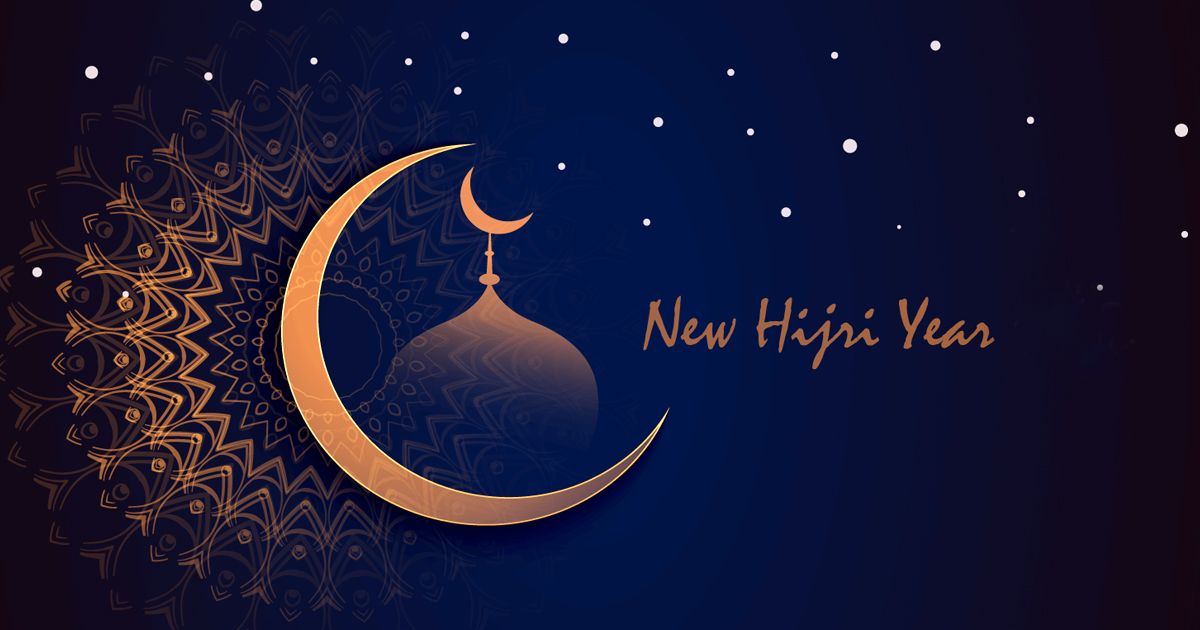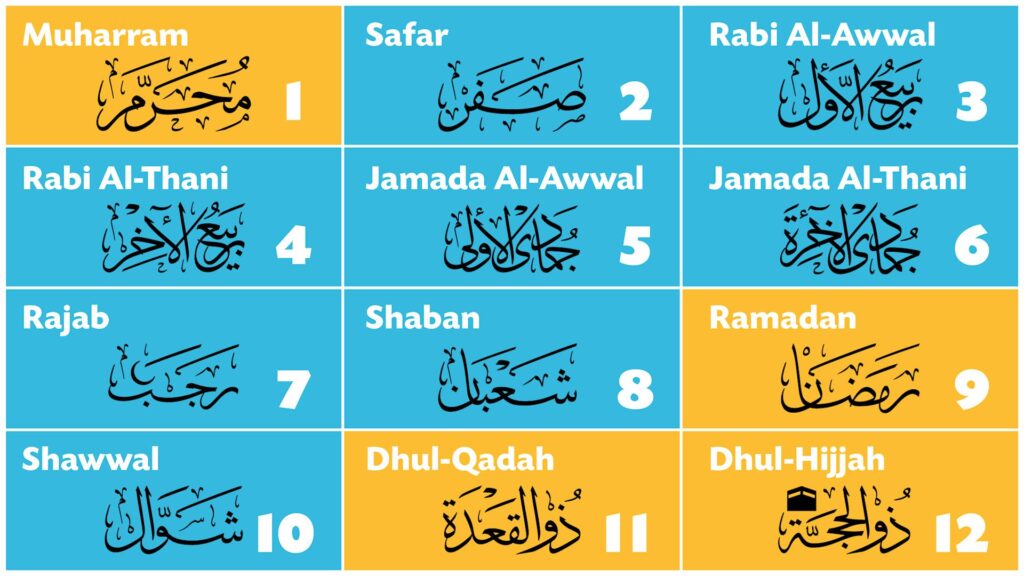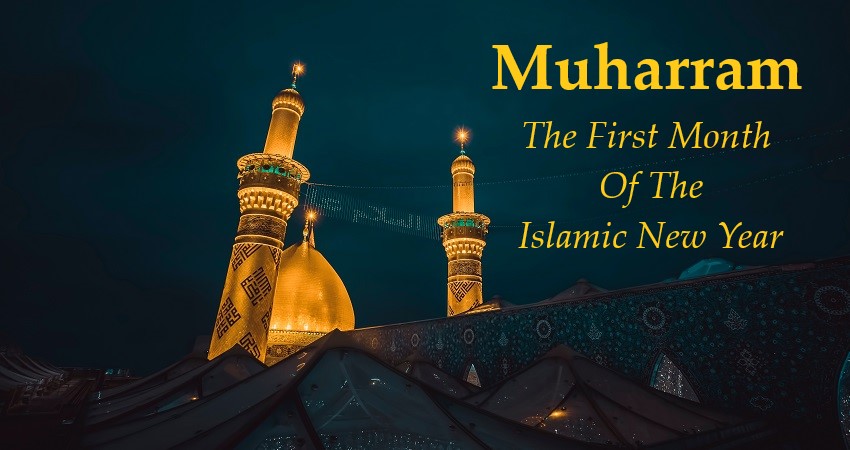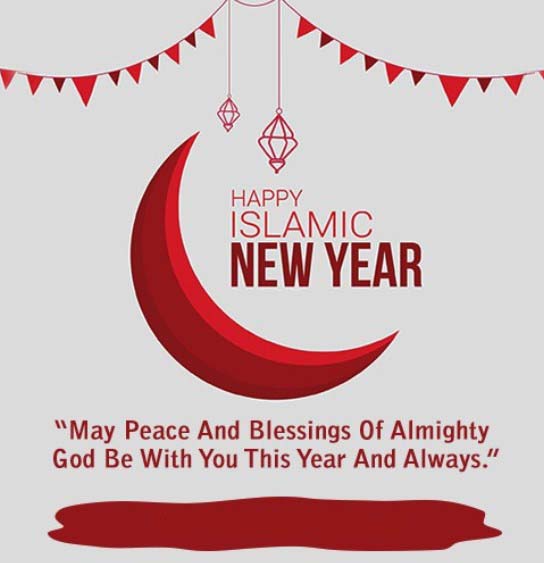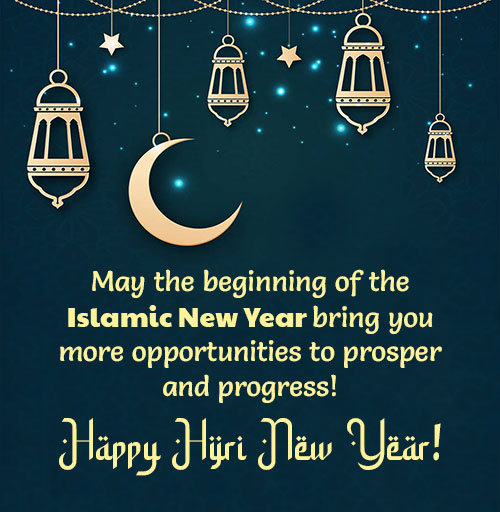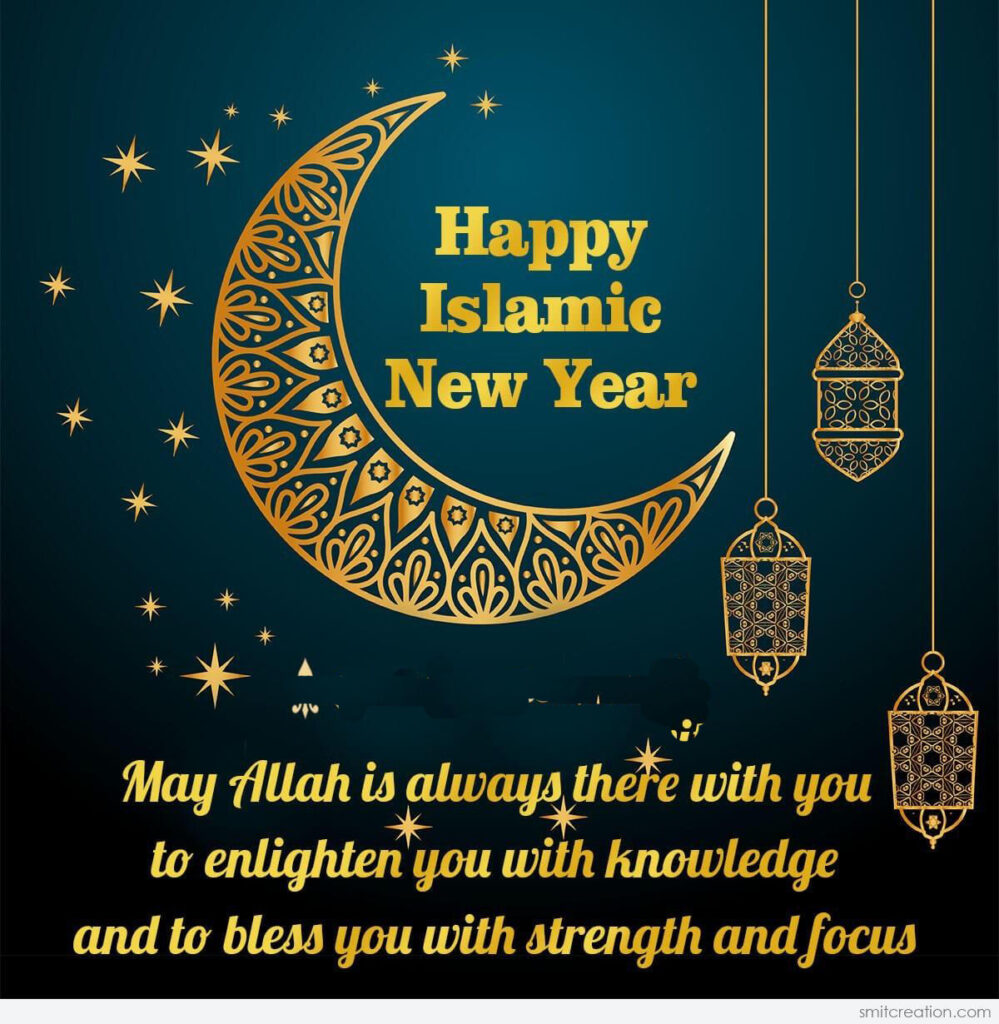The Islamic New Year, also known as Hijri New Year or Arabic New Year, marks the beginning of the Islamic lunar calendar. It is a significant occasion for Muslims worldwide, commemorating the migration of the Prophet Muhammad (peace be upon him) from Makkah to Madinah in 622 CE. The first month of the Islamic calendar, Muharram, holds immense historical and religious importance.
Muharram derives its name from the Arabic word “haram,” meaning sacred or forbidden. It is considered one of the four sacred months in Islam, along with Rajab, Dhul-Qa’dah, and Dhul-Hijjah. Muslims observe the first day of Muharram as the Islamic New Year, reflecting on the past and contemplating the year ahead.
The Islamic calendar follows a lunar system, consisting of 12 months, with each month lasting either 29 or 30 days. The beginning of each month is determined by the sighting of the new moon, making the Islamic New Year a time of anticipation and unity among Muslims worldwide.
While the Islamic New Year is not celebrated with grand festivities or widespread traditions, it holds a deep spiritual significance. It serves as an opportunity for Muslims to reflect on their faith, seek forgiveness, and set intentions for the upcoming year. It is a time for self-evaluation, gratitude, and renewal of one’s commitment to the principles of Islam.
Throughout Muharram, particularly on the 10th day, known as Ashura, Muslims commemorate the martyrdom of Imam Hussein, the grandson of Prophet Muhammad (peace be upon him), and his companions in the Battle of Karbala in 680 CE. This event holds great historical and emotional importance for the Shia Muslim community, who engage in mourning rituals and processions during this period.
While the observance of Muharram varies across different cultures and sects within Islam, the essence of the month remains consistent: a time for reflection, remembrance, and spiritual growth. It is an occasion to honor the sacrifices of the past and draw inspiration for the future.
In the following sections, we will explore quotes, messages, and wishes that can be shared to commemorate the Islamic New Year and 1st Muharram. These expressions of faith and goodwill serve as a reminder of the significance of this sacred time and the unity of the Muslim community.
Table of Contents
Significance of Muharram in Islamic Calendar
Muharram, the first month of the Islamic lunar calendar, holds immense significance in the Islamic calendar. It is a month of remembrance, reflection, and renewed commitment to faith. Here are some key aspects that highlight the significance of Muharram:
- Historical Events: Muharram is associated with several historical events that have shaped Islamic history. The most notable event is the Battle of Karbala in 680 CE, where Imam Hussein, the grandson of Prophet Muhammad (peace be upon him), and his companions were martyred. This event is mourned by Muslims, particularly the Shia community, during the month of Muharram.
- Martyrdom and Sacrifice: The martyrdom of Imam Hussein and his companions in Karbala is seen as a symbol of resistance against injustice and oppression. Their sacrifices serve as a reminder of the importance of standing up for truth and justice, even in the face of adversity.
- Reflection and Remembrance: Muharram is a time for Muslims to reflect upon the lessons learned from the events of Karbala and to remember the principles of sacrifice, courage, and steadfastness in the face of oppression. It is an opportunity to contemplate the values and teachings of Islam and to draw inspiration from the struggles and sacrifices of the past.
- Spiritual Renewal: Muslims use the month of Muharram as a time for spiritual renewal and self-purification. They engage in acts of worship, such as fasting, recitation of the Quran, and increased supplication, seeking closeness to Allah and seeking forgiveness for past mistakes.
- Unity and Solidarity: Muharram serves as a unifying force for Muslims worldwide, regardless of sectarian differences. It is a time when Muslims come together to commemorate the events of Karbala, expressing solidarity and empathy with the suffering of Imam Hussein and his companions.
- Lessons of Compassion and Social Justice: Muharram emphasizes the importance of compassion, empathy, and social justice in Islam. The events of Karbala highlight the responsibility of Muslims to speak out against oppression and to defend the rights of the weak and marginalized.
- Cultural Traditions: Muharram is also associated with various cultural traditions and practices observed by Muslims in different regions. These may include processions, recitations of elegies, and theatrical performances depicting the events of Karbala. These practices vary among different communities and reflect the cultural diversity within the Islamic world.
Overall, Muharram holds a deep significance in the Islamic calendar, serving as a time of reflection, remembrance, and renewed commitment to the principles of Islam. It is an occasion to draw lessons from the past, reinforce one’s faith, and foster unity within the Muslim community.
Islamic New Year Date and Observance
The Islamic New Year, also known as Hijri New Year or Arabic New Year, marks the beginning of the Islamic lunar calendar. The date of the Islamic New Year varies each year because the Islamic calendar follows the lunar cycle. The Islamic year consists of 12 months of either 29 or 30 days, depending on the sighting of the new moon.
The first day of Muharram, the first month of the Islamic calendar, is observed as the Islamic New Year. However, it’s important to note that the Islamic New Year is not widely celebrated with grand festivities or specific religious obligations. Instead, it is a time for reflection, gratitude, and setting intentions for the upcoming year.
Muslims around the world may observe the Islamic New Year in various ways, including:
- Reflection and Contemplation: The Islamic New Year is a time for Muslims to reflect on their past actions and to contemplate their relationship with Allah. It is an opportunity to evaluate one’s spiritual journey, seek forgiveness for any wrongdoings, and make resolutions for personal growth in the coming year.
- Gratitude and Thankfulness: Muslims express gratitude to Allah for the blessings and opportunities they have received in the previous year. They acknowledge the beginning of the new year as a chance to appreciate the goodness in their lives and to strive for gratitude in all aspects.
- Recitation of the Quran: Muslims may engage in recitation of the Quran during the Islamic New Year. This practice allows individuals to seek spiritual guidance, find solace, and deepen their connection with the divine words of Allah.
- Community Gatherings: Some Muslim communities may organize gatherings or events to mark the Islamic New Year. These gatherings may include lectures, discussions, or communal prayers, providing an opportunity for individuals to come together, strengthen their bonds, and seek knowledge and inspiration.
- Acts of Charity and Good Deeds: The Islamic New Year encourages Muslims to engage in acts of charity and kindness. Muslims may choose to give back to their communities, support charitable causes, or perform individual acts of kindness as a way to start the new year with goodwill and compassion.
While the observance of the Islamic New Year may differ across cultures and regions, the underlying spirit remains the same—seeking spiritual growth, expressing gratitude, and setting positive intentions for the year ahead. It is a time for Muslims to strengthen their relationship with Allah, reflect on their actions, and strive to live in accordance with the teachings of Islam.
Historical Background of 1st Muharram
The historical background of 1st Muharram, the first day of the Islamic lunar month of Muharram, holds significant importance in Islamic history. It is associated with several notable events, the most prominent being the migration of the Prophet Muhammad (peace be upon him) from Makkah to Madinah in 622 CE, known as the Hijrah.
The Hijrah was a pivotal event in the life of Prophet Muhammad and marked the beginning of the Islamic era. The migration was necessitated by the growing hostility and persecution faced by the early Muslims in Makkah. In search of a safe haven where they could practice their faith freely, the Prophet Muhammad and his companions embarked on the journey to Madinah.
The migration took place over several days and covered a distance of approximately 320 kilometers (200 miles). The date of the Prophet’s arrival in Madinah, which coincided with the first day of Muharram, holds great significance. It symbolizes a new chapter in the history of Islam, the establishment of the first Islamic state, and the development of a strong Muslim community.
The people of Madinah welcomed the Prophet Muhammad and his followers with open arms. The city became a sanctuary where Muslims could practice their faith without fear of persecution. The migration also marked the beginning of a period of great growth and expansion of Islam, both in terms of religious and political influence.
Furthermore, the events of 1st Muharram are intertwined with the Battle of Karbala, which occurred much later in Islamic history, specifically in 680 CE. On the 10th day of Muharram, known as Ashura, Imam Hussein, the grandson of Prophet Muhammad, along with a small group of his companions, faced a tragic and brutal martyrdom in Karbala (in present-day Iraq) at the hands of the forces loyal to the ruling caliphate.
Imam Hussein’s martyrdom at Karbala became a defining moment for the Shia Muslim community and is mourned each year during the month of Muharram. It is a time of deep reflection, remembrance, and commemoration of the sacrifices made by Imam Hussein and his loyal followers in their stance against injustice and tyranny.
Overall, the historical background of 1st Muharram encompasses the significant events of the Prophet Muhammad’s migration to Madinah, which laid the foundation for the Islamic calendar and the growth of the Muslim community. It also encompasses the later events of the Battle of Karbala, which hold immense religious and emotional significance for the Shia Muslim community. These events shape the observance of Muharram and its commemoration among Muslims worldwide.
Quotes to Reflect on Islamic New Year
- “And He it is who has made the night a covering for you, and the sleep a rest, and He has made the day to rise up again.” – Quran 25:47
- “Verily, the number of months with Allah is twelve months (in a year), so it was ordained by Allah on the Day when He created the heavens and the earth; of them, four are sacred. That is the right religion, so wrong not yourselves therein.” – Quran 9:36
- “Do not look back with regret; look forward with hope. Have faith in Allah’s plan for you and embrace the blessings of the new year.”
- “The best of deeds are those done consistently, even if they are small.” – Prophet Muhammad (peace be upon him)
- “The past is gone, the future is not yet here. We only have this moment. Let us make the most of it by seeking Allah’s blessings and forgiveness.”
- “The Islamic New Year reminds us of the importance of starting anew, leaving behind what is behind and focusing on the journey ahead.”
- “In every day and every year, strive to grow closer to Allah, for it is He who guides us and blesses us with new beginnings.”
- “Let the Islamic New Year be a time to renew your intentions, strengthen your faith, and seek Allah’s mercy and forgiveness.”
- “Reflect on the lessons of the past, embrace the blessings of the present, and trust in Allah’s plan for the future.”
- “As we enter the Islamic New Year, may our hearts be filled with gratitude, our souls be purified, and our actions be guided by faith and righteousness.”
Remember to ponder on these quotes, internalize their wisdom, and apply them to your personal journey as you embark on the Islamic New Year.
Messages to Share on 1st Muharram
Here are some messages to share on 1st Muharram:
- “Wishing you a blessed Islamic New Year filled with faith, peace, and prosperity. May this new beginning bring you closer to Allah and His abundant blessings.”
- “On this auspicious day of 1st Muharram, may Allah’s blessings be upon you and your family. May this new year be a source of inspiration and strength in your journey of faith.”
- “As we embark on the Islamic New Year, let us leave behind the mistakes of the past and embrace the opportunities of the future. May Allah grant you a year filled with joy, love, and success.”
- “On 1st Muharram, may your heart be filled with gratitude for Allah’s blessings and your soul be rejuvenated with the spirit of Islam. Wishing you a year of spiritual growth and enlightenment.”
- “May the Islamic New Year bring peace, unity, and harmony to the Muslim Ummah and the world. Let us stand together in faith and strive for a better tomorrow.”
- “As we enter the first day of Muharram, may Allah shower His mercy upon you and your loved ones. May this year be a journey of forgiveness, compassion, and self-reflection.”
- “On this blessed day, I pray that the light of faith shines brightly in your life. May Allah’s guidance lead you on the path of righteousness throughout the Islamic New Year.”
- “As the Islamic New Year begins, may your days be filled with blessings, your nights with peace, and your heart with contentment. Wishing you a prosperous year ahead.”
- “Let us use the occasion of 1st Muharram to renew our commitment to Islam and seek forgiveness for our shortcomings. May Allah grant us strength and sincerity in our worship.”
- “On this special day, may the spirit of unity and brotherhood prevail among Muslims worldwide. May the Islamic New Year inspire us to work together for a better future.”
Feel free to personalize these messages or combine them with your own heartfelt wishes to share with your loved ones, friends, and the Muslim community on 1st Muharram.
Inspiring Islamic New Year Wishes
Certainly! Here are some inspiring Islamic New Year wishes to uplift and motivate:
- “As the Islamic New Year begins, may your faith be strengthened, your heart be filled with gratitude, and your soul be enlightened with the blessings of Allah. Happy New Year!”
- “May the Islamic New Year bring you countless opportunities to grow spiritually, achieve your goals, and draw closer to Allah. Wishing you a year filled with peace, joy, and success.”
- “On this Islamic New Year, may Allah bless you with unwavering faith, abundant blessings, and the courage to overcome any challenges that come your way. Have a blessed year ahead!”
- “As we step into the Islamic New Year, may Allah’s mercy and guidance be with you in every step you take. May your journey be filled with hope, love, and the fulfillment of your dreams.”
- “In this new chapter of the Islamic New Year, may Allah grant you the wisdom to make the right choices, the strength to overcome obstacles, and the peace that comes from being closer to Him.”
- “As the Islamic New Year dawns upon us, let us leave behind our regrets and mistakes of the past and embrace the blessings and opportunities that lie ahead. May this year be a turning point in your life.”
- “On this auspicious occasion, I pray that the Islamic New Year brings you courage to face challenges, determination to pursue your dreams, and unwavering faith to guide you through every moment. Happy New Year!”
- “May the Islamic New Year inspire you to seek knowledge, deepen your understanding of Islam, and strive for excellence in all aspects of life. May you find fulfillment and purpose in your journey.”
- “As the Islamic New Year unfolds, may your heart be filled with tranquility, your mind with clarity, and your actions with righteousness. May you grow closer to Allah and find true joy in His remembrance.”
- “On this Islamic New Year, I pray that Allah showers His blessings upon you and grants you the strength to make positive changes in your life. May this year be a stepping stone towards a fulfilling and purposeful future.”
Feel free to share these inspiring wishes with your loved ones, friends, and fellow Muslims as you celebrate the Islamic New Year.
Traditions and Customs During Islamic New Year
Traditions and customs during the Islamic New Year may vary across different regions and cultures. While there are no specific religious obligations or prescribed rituals for this occasion, here are some common traditions and customs observed by Muslims during the Islamic New Year:
- Reflection and Remembrance: Many Muslims take time to reflect on the past year, express gratitude for Allah’s blessings, and seek forgiveness for any shortcomings. They may engage in personal introspection, recite prayers, and make sincere resolutions for self-improvement in the coming year.
- Offering Prayers: Muslims may choose to offer additional prayers, such as voluntary (nafl) prayers, during the Islamic New Year as a way of seeking blessings and drawing closer to Allah. They may visit mosques or gather in congregations to perform these prayers.
- Recitation of the Quran: Muslims often engage in the recitation of the Quran during the Islamic New Year. They may read specific chapters or verses that inspire them or reflect upon the teachings of the Quran to find guidance and inspiration for the year ahead.
- Giving Charity: The Islamic New Year is a time for acts of charity and kindness. Muslims may donate to charitable causes, provide assistance to those in need, or engage in acts of goodwill as a way to start the year with blessings and generosity.
- Family and Community Gatherings: Families and friends may come together to celebrate the Islamic New Year by sharing meals, exchanging greetings, and spending time in each other’s company. It is a time for strengthening family bonds, fostering community spirit, and spreading joy and love.
- Seeking Knowledge: The Islamic New Year can be a time for seeking knowledge and attending lectures, seminars, or educational programs that focus on Islamic teachings and spiritual growth. Many educational institutions and mosques organize events to inspire learning and personal development during this time.
- Special Prayers and Sermons: Some mosques and Islamic centers may hold special congregational prayers or sermons to mark the beginning of the Islamic New Year. Islamic scholars may deliver speeches or sermons that emphasize the significance of the occasion and provide guidance for the upcoming year.
- Sharing Greetings and Well-Wishes: Muslims may exchange greetings and well-wishes with family, friends, and members of the community. Common greetings include “Happy Islamic New Year,” “Muharram Mubarak,” or “May Allah bless your year.”
It’s important to note that customs and traditions may vary depending on cultural practices and regional customs. The focus during the Islamic New Year is generally on personal reflection, spiritual growth, acts of kindness, and renewing one’s commitment to faith.
Practices of Remembrance and Reflection on 1st Muharram
On the first day of Muharram, Muslims engage in various practices of remembrance and reflection as they commemorate the Islamic New Year. These practices aim to deepen their understanding of the significance of Muharram and foster a sense of connection to the past and its lessons. Here are some common practices of remembrance and reflection on 1st Muharram:
- Recitation of Quran: Muslims often recite the Quran on 1st Muharram to seek spiritual guidance and find solace in the words of Allah. They may choose to recite specific chapters or verses that hold special meaning to them or reflect upon the themes of renewal, repentance, and gratitude.
- Offering Voluntary Prayers: Muslims may perform additional voluntary prayers, such as Sunnah or Nafl prayers, on the day of 1st Muharram. These prayers serve as a means to seek forgiveness, express gratitude, and start the new year with a renewed commitment to faith.
- Reflective Contemplation: Many Muslims take time for personal reflection and contemplation on 1st Muharram. They may ponder over their actions and behaviors in the past year, assess their spiritual journey, and make intentions for personal growth and positive change in the coming year.
- Seeking Knowledge: Muslims may engage in activities that promote learning and understanding during the Islamic New Year. This can include attending lectures, sermons, or educational programs that focus on the historical significance of Muharram, the lessons from the life of Prophet Muhammad and his companions, and the values of sacrifice, perseverance, and justice.
- Commemorating the Martyrdom of Imam Hussein: For Shia Muslims, 1st Muharram marks the beginning of the commemoration of the martyrdom of Imam Hussein, the grandson of Prophet Muhammad, which occurred on the 10th day of Muharram (Ashura). They engage in various rituals, including processions, recitations of elegies (Marsiya), and recounting the events of Karbala, to honor the sacrifice of Imam Hussein and his companions.
- Fasting: Some Muslims choose to observe voluntary fasting on 1st Muharram or on the 9th and 10th days of Muharram (Ashura). Fasting is seen as an act of devotion and a way to express solidarity with the struggles and sacrifices of the past.
- Acts of Charity: Muslims may also engage in acts of charity and kindness on 1st Muharram as a way to start the new year with blessings and goodwill. This can include giving to the poor, feeding the needy, or supporting charitable causes.
These practices of remembrance and reflection on 1st Muharram provide an opportunity for Muslims to connect with their faith, seek forgiveness, and set their intentions for the upcoming year. They serve as reminders of the values and teachings of Islam and the importance of personal growth, gratitude, and self-reflection.
Spreading Peace and Unity on Islamic New Year
Spreading peace and unity is a beautiful and essential aspect of celebrating the Islamic New Year. Here are some ways to promote peace and unity on this occasion:
- Extend Warm Greetings: Reach out to family, friends, and members of the community with heartfelt greetings of peace and blessings for the Islamic New Year. Use this opportunity to foster connections, mend relationships, and strengthen bonds of friendship and brotherhood/sisterhood.
- Embrace Diversity: Islam is a faith that celebrates diversity. Use the Islamic New Year as a chance to appreciate and respect the diversity within the Muslim community and beyond. Embrace different cultures, traditions, and perspectives, recognizing that unity can be found in our shared values and principles.
- Practice Forgiveness: The Islamic New Year provides a fresh start and an opportunity for forgiveness. Let go of grudges, resentments, and past conflicts. Reach out to those you may have had disagreements with and seek reconciliation, fostering an atmosphere of forgiveness and understanding.
- Engage in Acts of Kindness: Perform acts of kindness and service that promote peace and unity within your community. Volunteer at local organizations, help those in need, and contribute to initiatives that foster harmony and understanding among people of different backgrounds.
- Organize Interfaith Dialogues: Arrange interfaith dialogues or gatherings where people from different religious backgrounds can come together to share experiences, discuss common values, and build bridges of understanding. Such interactions contribute to fostering peaceful coexistence and unity.
- Promote Tolerance and Respect: Spread awareness about the importance of tolerance and respect for all individuals, regardless of their beliefs, ethnicities, or backgrounds. Encourage open-mindedness, empathy, and dialogue as key tools for promoting peace and unity.
- Support Peaceful Initiatives: Look for and support initiatives that promote peace, harmony, and understanding at both local and global levels. This can include participating in peace rallies, supporting organizations that work for conflict resolution, or advocating for social justice.
- Engage in Prayers for Peace: Offer prayers and supplications for peace and unity during the Islamic New Year. Pray for harmony within communities, nations, and the world at large. Seek Allah’s guidance and blessings for peace to prevail in all aspects of life.
- Educate Others: Take the opportunity to educate others about the principles and values of Islam that emphasize peace, justice, and unity. Counter misconceptions and stereotypes by sharing knowledge and engaging in respectful conversations.
- Lead by Example: Be a role model for peace and unity through your own words, actions, and behavior. Treat others with kindness, fairness, and compassion, and strive to resolve conflicts peacefully. Let your conduct be a reflection of the values of Islam and the pursuit of harmony.
By actively spreading peace and unity during the Islamic New Year, we can contribute to creating a more harmonious and inclusive society, one that upholds the principles of Islam and fosters a sense of belonging and togetherness among all people.
Conclusion
The Islamic New Year, marked by the observance of 1st Muharram, holds great significance for Muslims around the world. It is a time of reflection, renewal, and a fresh beginning in the Islamic calendar. Throughout history, the first day of Muharram has been a time for remembrance, introspection, and acts of devotion.
From reflecting on the historical events that took place during Muharram to seeking forgiveness and setting intentions for the year ahead, Muslims engage in various practices to commemorate this special occasion. They recite the Quran, offer voluntary prayers, and engage in acts of charity and kindness.
The Islamic New Year also presents an opportunity to promote peace and unity. Muslims strive to spread goodwill, mend relationships, and foster a sense of togetherness within their communities. By embracing diversity, practicing forgiveness, and engaging in acts of kindness, they contribute to a more harmonious and inclusive society.
As Muslims embark on this new year, they seek spiritual growth, draw closer to Allah, and embrace the values of Islam. The Islamic New Year serves as a reminder of the importance of faith, gratitude, and self-reflection.
In conclusion, the Islamic New Year and the observance of 1st Muharram hold deep significance in the lives of Muslims. It is a time of remembrance, reflection, and renewal—a time to strengthen one’s faith, seek forgiveness, spread peace, and strive for unity. As Muslims enter this new chapter, they embark on a journey of personal and spiritual growth, guided by the teachings of Islam and the lessons of the past.

